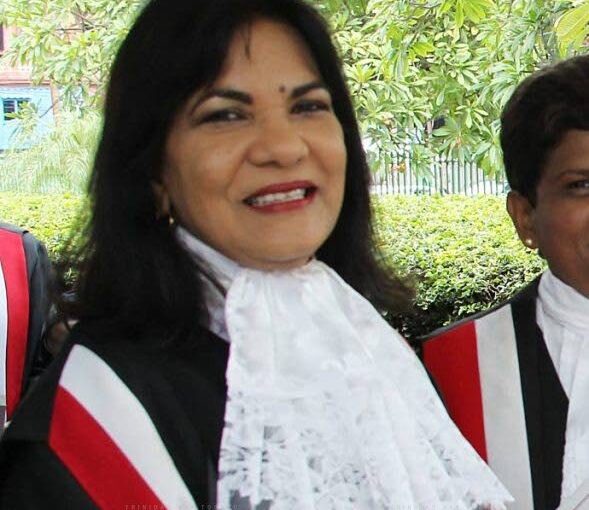Historic Tunapuna Hindu Temple ownership dispute resolved
Written by Jada Loutoo on December 27, 2024

A protracted legal battle over ownership of the Tunapuna Hindu Temple, also known as the “Shivalla,” was resolved in a judgment delivered by Justice Carol Gobin on December 23.
The court declared the late Goomtie Gosine and her heirs as the rightful owners of the property at LP No. 333 Eastern Main Road, Tunapuna, extinguishing claims made by five of her late husband’s siblings and members of the Tunapuna Hindu Temple.
According to the evidence in the case, Goomtie Gosine married into the Gosine family in 1966 and lived on the property with her husband, Ouditnarine, until he died in 2009.
She argued that she and her late husband had been in exclusive possession of the temple, residence, and adjoining car park since the 1980s, after the migration of other family members.
Her late husband’s siblings based their claim on a 1963 deed executed by their father Jairam, which they argued established joint ownership of the property among his children. They contended that Goomtie had resided on the property only with their consent and sought to reclaim it after her husband’s death.
In deciding the case, the judge declared Goomtie Gosine and her heirs were the legal owners of the property, including the temple, dwelling house, jewellery store, and car park.
She also nullified the 1963 deed and all consequential deeds, deeming them null and void, with instructions to the Registrar General to expunge them.
She also granted an easement (which in law is the right to cross or use someone else’s land for a specific purpose) to the worshippers of the temple, known as the “Shivalla,” allowing them to access the temple for worship and use associated facilities such as the kitchen and restrooms.
The five Gosine defendants were also to pay $50,000 in damages for trespass and were restrained from interfering with the property or its occupants in addition to $14,000 in costs.
The Shivalla, reputed to be the oldest Hindu temple in Trinidad, stands as a sacred monument dedicated to Lord Shiva, the judge noted.
She referred to an article published in 1952 by Seepersad Naipaul, journalist, author and father of Sir Vidya Naipaul, about the temple. Naipaul said the temple was built almost half a century after the arrival of the first set of indentured labourers from India in 1845.
The judge said the temple was a “testament to their piety, their devotion and foresight, that so soon after their arrival in a strange new world our forefathers saw the necessity to put down the roots for the propagation and preservation of the practice of their Hindu faith.
“We are all the beneficiaries of their courage, commitment and vision.
“What we take for granted now as our national community observes Hindu traditions, including Divali celebrations, regardless of religious, cultural and ethnic differences may well have started with the erection and establishment of this place of worship.”
She said the parties to the lawsuit recognised the historical significance of the Shivalla and its importance to the Hindu community, particularly in Tunapuna.
“But it has sadly found itself at the centre of a drawn-out legal battle, the determination of which requires a secular court to treat what is acknowledged to be a sacred monument, as mere real property, and to declare its ownership in accordance with common law principles of land law and the law of trusts to the extent they may be applicable.”
The Shivalla stands on two lots of land between the Eastern Main Road and Archibald Street.
Goomtie Gosine’s attorney Kingsley Walesby urged the judge to include an order that the National Trust act as agent or trustee of the temple.
Gobin said she welcomed the suggestion, but said she preferred to leave it up to the parties and the Trust to take what steps they considered necessary to “ensure that this historical national treasure is preserved as part of our history.
“Now that the litigation has come to an end I can only express the hope that the representative of the claimant who has been successful will follow up on the suggestion which came from her and that she will do what is necessary to preserve the importance of this beautiful sacred monument for generations to come of Hindus as well as of our wider population.”
Attorneys Vashist Maharaj and Robert Boodoosingh represented the Gosine siblings while Seana Baboolal and Yaseen Ali represented the temple’s members.
The post Historic Tunapuna Hindu Temple ownership dispute resolved appeared first on Trinidad and Tobago Newsday.




